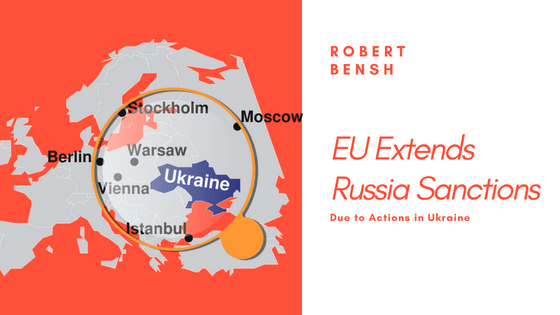Recently, the Council of the European Union has extended sanctions against Russia over its involvement in Ukraine. This decision to prolong the sanctions was settled upon unanimously among 28 Council member states, and as a result, the imposed sanctions will last for another six months into the year 2019. News of the EU’s decision came less than two weeks prior to the planned summit between United States’ President Donald Trump and Russian president Vladimir Putin.
In March of 2014, Russia illegally annexed Ukraine’s Crimean Peninsula, a move which many nations decided was a breach of international law. The EU refrained from holding regular bilateral summits, and bilateral talks with Russia were then suspended. After this annexation, the EU imposed sanctions on Russia for intentionally destabilizing situations in Ukraine.
Four years later, on 5 July 2018, the Council decided to extend sanctions until 2019. These sanctions have targeted the financial, energy and defense sectors of the Russian economy, with many of them aiming to restrict economic cooperation. These measures will continue to persist after the extension. Along with Russia, Crimea has seen sanctions as well. As a result of the annexation, Crimean business will not be able to see EU-based companies investing in the peninsula until June 23, 2019.
Having decided unanimously, the EU will continue to impose restrictions on economic activity that could benefit Russia’s defense, financial, or energy sectors until Jan. 31, 2019. Some of these prolonged sanctions include measures for banning the importation and exportation of traded arms and measures for restricting the number of technologies that would allow Russia access to oil production and exploration. As a response to the Ukrainian crisis, the EU has incorporated restrictive measures that will freeze assets and implement travel bans for over a hundred people and entities who are known to have undermined Ukraine’s sovereignty.
Despite such an extensive decision, many sources claim that the extension had been widely expected. Seeing as the EU has generally been unsuccessful in its attempts to placate Putin in regards to the conflict in Ukraine, many watchful eyes hope these prolonged sanctions will add more pressure to Russia and eventually spur desired results.
